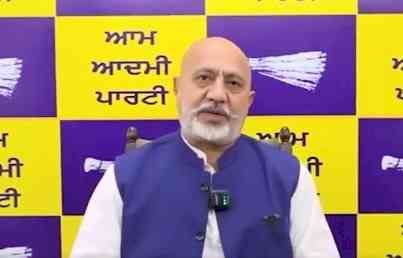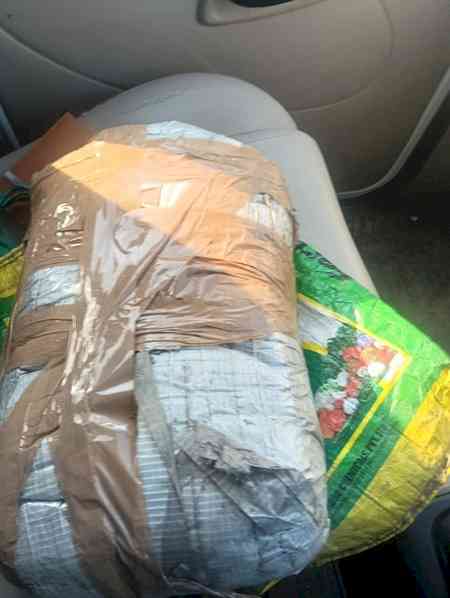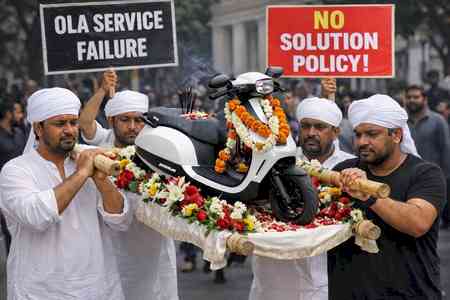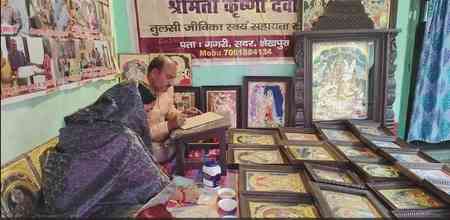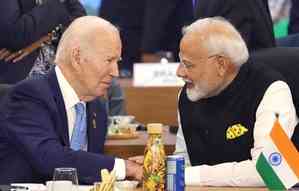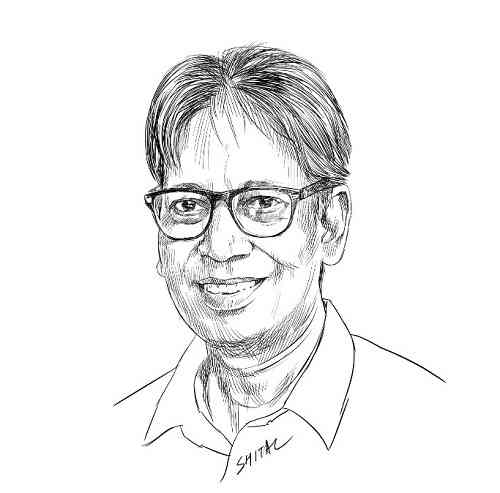Punjab agri-minister addresses key stakeholders over crop residue management at PAU
A Consultation Meet with key stakeholders over ‘Crop Residue Management’ (CRM) was convened with collaborative efforts of ICAR- Agricultural Technology Application Research Institute, Ludhiana, and Punjab Agricultural University (PAU), at the varsity campus here today.
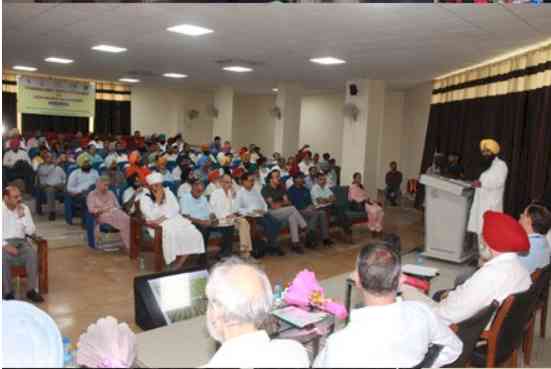
Ludhiana, September 29, 2023: A Consultation Meet with key stakeholders over ‘Crop Residue Management’ (CRM) was convened with collaborative efforts of ICAR- Agricultural Technology Application Research Institute, Ludhiana, and Punjab Agricultural University (PAU), at the varsity campus here today.
The event commenced with paying a befitting tribute to renowned agricultural scientist and driver of transformatory Green Revolution, Dr MS Swaminathan, who passed away recently. The meet was attended by senior officers from relevant departments in the State Governments of Punjab, Haryana, Rajasthan, Uttar Pradesh, and Delhi, Indian Council of Agricultural Research (ICAR), academia, various stakeholder agencies, farmers, social groups and NGOs, representatives from agricultural machinery manufacturing industries, and biomass industry associations.
The Chief Guest, Gurmeet Singh Khudian, Minister of Agriculture and Farmers’ Welfare, Government of Punjab reiterated the government’s commitment to farmers’ welfare and hailed the research and extension services of PAU that reached the doorstep of the farmers, arming them with the latest technical know-how. He shared that the Department of Agriculture and PAU should synchronize their efforts and revitalize agricultural extension system to meet the ever-evolving needs of the farming community. Khudian appreciated the hardworking farmers who had made the state prosperous and at the same time showered effusive praise on the university scientists who were pro-actively engaged in making agriculture sustainable and profitable. He also urged the farmers to adopt various approaches for paddy stubble management as recommended by the varsity; to diversify their crop choices, and highlighted the potential of cultivating alternative crops that could contribute to both farmers’ prosperity and ecological sustainability.
The Vice-Chancellor of PAU, Dr Satbir Singh Gosal, stated that it was imperative to curb the practice of paddy straw burning, at the same time, identifying obstacles hindering the progress. These included a large amount of paddy residue and the limited time-frame for sowing wheat. To address these challenges, he proposed increasing baler capacity, deploying more machinery in high burning areas, involving cooperative societies for support, and replicating successful initiatives. He expressed his hope for no-burn agriculture to become the norm by the following year. Dr Gosal emphatically stressed that everyone must shoulder the responsibility of preventing environmental contamination and sustaining clean air. He cautioned that stubble burning emits toxic pollutants which disperse in the surroundings and, eventually, affect the air quality and people’s health by forming a thick blanket of smog. The heat generated due to farm fires penetrates into the soil, causing nutrient deficiency as well as loss of useful microbes and moisture, leading to infertile soil and vulnerable crops, he explained. He advocated the concept of conservation agriculture which up-cycles paddy straw without producing any waste. He called for synergy among the Department of Agriculture, NGOs, academia, industry and farmers to tackle the menace of paddy straw burning. Underscoring the value of paddy straw as a nutrient-rich resource for improving soil properties, he exhorted the farmers to adopt Surface Seeding-cum-Mulching Technology, which prevents lodging, reduces irrigation, herbicidal spray, and weed infestation. He encouraged them to adopt this cost-effective, eco-friendly, and water-efficient method to enhance soil health, crop output, and overall yield while reducing input costs.
The Vice-Chancellor of Guru Angad Dev Veterinary and Animal Sciences University (GADVASU), Ludhiana, Dr Inderjeet Singh, too addressed the need for in-situ management of crop residue, highlighting the significance of retaining biofertilizers, phosphorus-fixing bacteria and friendly microbes in the soil, that are unfortunately destroyed as a result of farm fires. He pointed out that improved residue can be used as animal feed; sharing that this practice not only promotes good animal health but also multiplies milk production. The milk production had witnessed an increase from 1300 kg last year to 2300 kg this year, he added.
Highlighting the farm machinery developed at PAU, Dr Gursaheb Singh Manes, Additional Director Research (FMPE) delved into the extensive initiatives on CRM taken up by the University. He cited the use of PAU Super SMS- Happy Seeder, Super Seeder, Smart Seeder, Surface Seeder, methods of shallow (wet mixing) and deep incorporation (chopping, MB Plough, rotavator), in-situ microbial decomposer and straw baling etc. He also unveiled the ‘Surface Seeding-cum-Mulching Technique’ to combat the persistent challenge of paddy residue management post-harvest.
Director, ICAR-ATARI, Zone-I, Ludhiana, Dr Parvender Sheoran, shared an exhaustive report on the ‘Information, Education and Communication (IEC) Activities under CRM Project led by ICAR through KVKs’. A total of 60 IEC activities have been implemented by KVKs this year, including 22 in Punjab, 23 in Uttar Pradesh, and 15 in Haryana and Delhi, he divulged. He further shared a ‘Roadmap for 2023’, wherein farmers would be reached via six regional Kisan Melas and 16 Awareness Campaigns across various districts of Punjab. He went on to share that ICAR-ATARI would identify ‘residue burning hotspots’; and mark red, green and orange zones on block, village and individual levels. He further apprised the audience of the ‘Prali Prabandhan Chetna Yatra’ starting from October 04-19 this year, addressing issues that concern CRM, mobilizing 8 lakh farmers, 25000 ha area to be brought under residue management, and 250 villages to be targeted as ‘burn-free’.
Dr RK Singh, Additional Director General, ICAR, fervently appealed to all stakeholders, farmers and scientists to remember that we all share a common earth and are bound to preserve its vitality, fertility and sustainability. Underlining the detrimental effects of air pollution on the environment, climate, and human health, he elaborated that burning one ton of paddy straw produces 3 kg of particulate matter, 60 kg of carbon monoxide, 1460 kg of carbon dioxide, 2 kg of sulphur dioxide, and 199 kg of ash. This not only leads to soil nutrient loss but also negatively affects temperature, pH, moisture, and organic matter. He also suggested ex-situ management through strategic mapping of villages, establishing briquetting/pelleting plants at strategic locations, and developing a supply chain for utilizing straw as fuel in various industries and for biomass power generation, compressed biogas production, bio-ethanol, packaging material, and more.
On the occasion, the Vice-Chancellor of PAU, Dr Satbir Singh Gosal, and Dr Tejinder Singh Riar, Additional Director Communication, released a poem ‘Dharti Maa di Pukaar’, penned by S. Surjit Singh Rai. The poem makes a fervent appeal for conservation of the sanctity of ‘Mother Earth’. Also, two e-publications by ICAR, Extension Education, were released during the event- ‘Compendium on Roadmap 2023’ and ‘Proceedings on Review Workshop on CRM and KVKs of Punjab, Haryana, Delhi and Uttar Pradesh.
Earlier, Dr Vishal Bector, Associate Director (Institution Relations), PAU, welcomed the guests and coordinated the programme. Dr Gurmeet Singh Buttar, Director Extension education, PAU, proposed a vote of thanks and assured that all possible efforts will be made to make this year a ‘zero residue burn’ year. Dignitaries were felicitated with mementos; and Appreciation Certificates were awarded to scientists from KVKs for their remarkable efforts in mobilizing and sensitizing farmers on the issue of CRM. Director, ICAR-CIPHET, Dr Nachiket Kotwaliwale; Chairman, Farmers’ Service Commission, Punjab, Dr Sukhpal Singh; Dr Rajbir from KVK Panipat; Dr RC Verma from KVK Kaithal; and Dr SK Singh from KVK Uttar Pradesh also lent their presence to the event.


 City Air News
City Air News 

